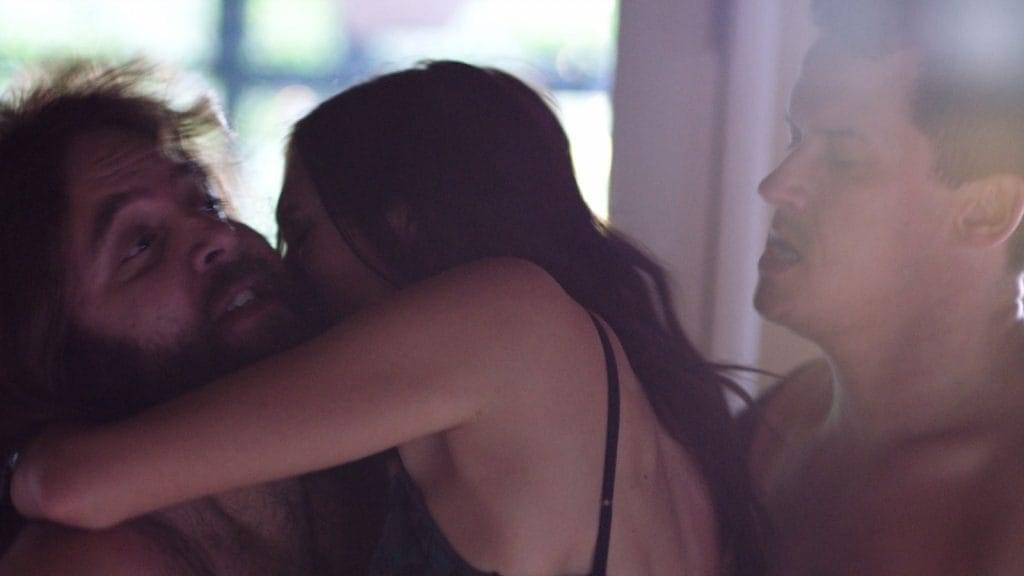
Mike Leigh’s new film “Vera Drake” is a peculiar endeavor about a cleaning woman in 1950 London with the proverbial heart of gold. Vera lives in a state of perpetual cheerfulness and she happily scrubs the homes of the well-to-do with a smile on her lips. In her free hours, Vera can be found happily assisting her bed-ridden elderly mother, checking up on an invalid neighbor, matchmaking for her frumpy daughter Ethel and a lonely neighbor, and helping poor women terminate their unwanted pregnancies.
If that last activity seems a bit out of the ordinary, then some background info is in order. Abortion was illegal in the UK until 1967. Wealthy women with the right connections were able to pay private clinics to perform abortions, and the daughter of one of Vera’s employers goes this route when a date rape leads to an unwanted occupant in her uterus. But for poor pregnant women who could not afford unscrupulous medical professionals, other alternatives were required.
“Vera Drake” should have been a compelling drama about the precarious state of women’s health issues during a time when abortion was a crime. But the film’s screenplay is thick with major lapses in logic, resulting in a story that ultimately makes little sense.
For starters, Vera does not accept money for her abortions. Her assignments come from Lily, a long-time friend who runs a black market ring offering tea and food (postwar Britain experienced rationing of these items well into the 1950s). Lily pockets the money from desperate women, but Vera is totally unaware of this. But Vera, as it later turns out, has been performing abortions for 20 years. It is thoroughly impossible for any person to be involved in activity for two decades and not question if money is involved – especially with a blatantly mercenary character like Lily, who actually charges Vera for purchases of contraband sugar and candy.
Furthermore, Vera’s family is totally in the dark of her abortion activities. The film’s emotional peak is supposed to come when the police arrive during a family party to arrest Vera for an abortion which resulted in a girl’s near-death. While it is not uncommon for people to lead double lives, it strains the imagination that Vera could have a parallel career as a pro bono abortionist for 20 years without her family catching on – even if neighborhood gossip got back to them.
But the worst part of “Vera Drake” is the astonishing stereotypes used to portray 1950 London. The working class are depicted as warm, emotional, fun-loving types who keep an eye out for their neighbors and friends. Everyone lives to the fullest extremes: living in tacky flats, wearing loud clothing, dancing in raucous clubs, taking in corny movies, and drinking oceans of tea. Vera seems to spend half of the film making tea – the woman appears to be on a mission to singlehandedly ensure the British tea industry remains solvent. The upper class, however, are entirely icy and self-centered. Their homes look like museums and they dress with impeccable good taste, yet they are emotionally sterile to the core. The poorer folks who aspire to their level soon adapt their vices: the wife of Vera’s brother is a snide bitch who is obsessed with using her husband’s hard-earned money for acquiring a washing machine and television. She wants a bigger house and a fancier life, but her working class accent pegs her as a parvenu and her distaste for Vera’s family labels her as a class traitor.
British TV actress Imelda Staunton gets a rare big screen starring role as Vera, but Mike Leigh never gives her anything substantial to work with. She spends the first part of the film with a constant smile, while the latter part of the film (after her character’s arrest) has her weeping endlessly. Maybe a more daring actress could’ve pulled this off and created much-needed depth in this flat role (Patricia Routledge would’ve been my ideal choice). But as it stands, Staunton’s performance is strictly one dimensional and never moving. Nearly all of her co-stars share the monotony, including that jolly ham Jim Broadbent in a cameo as an unsympathetic judge. Something is clearly wrong if Jim Broadbent can’t overplay his hand!
The only performance that makes “Vera Drake” worth watching is Ruth Sheen as Lily. With her clunky eyeglasses and sneery demeanor, she comes across like a British distaff version of Phil Silvers’ Sgt. Bilko. Whether she is impatiently belittling desperate pregnant women or confounding dull police investigators, Sheen is a marvel of feisty, ill-tempered arrogance. Her brief scenes when she is offering Vera the latest bounty of black market teas, sardines and sweets are a riot of nasty capitalism at its underground worst. Both Sheen and her character are true originals and it’s too bad Mike Leigh didn’t bother to anchor his film here.
